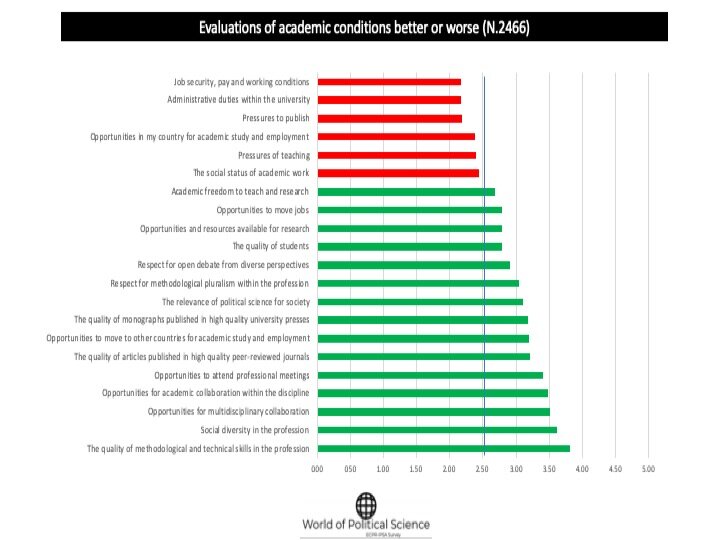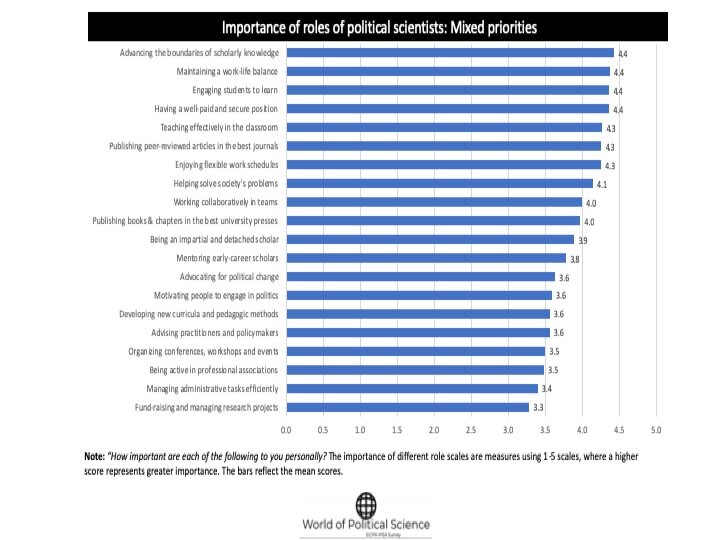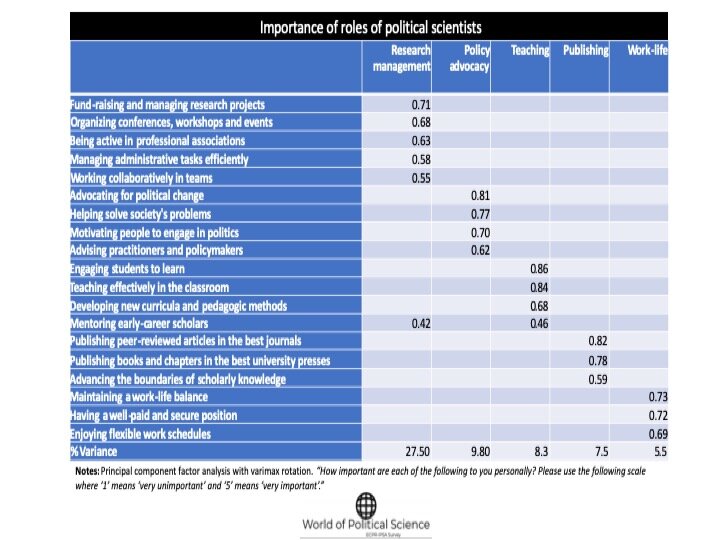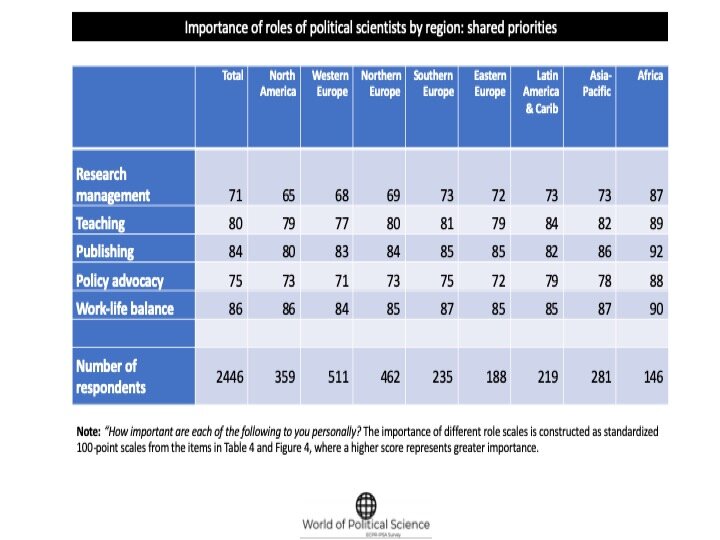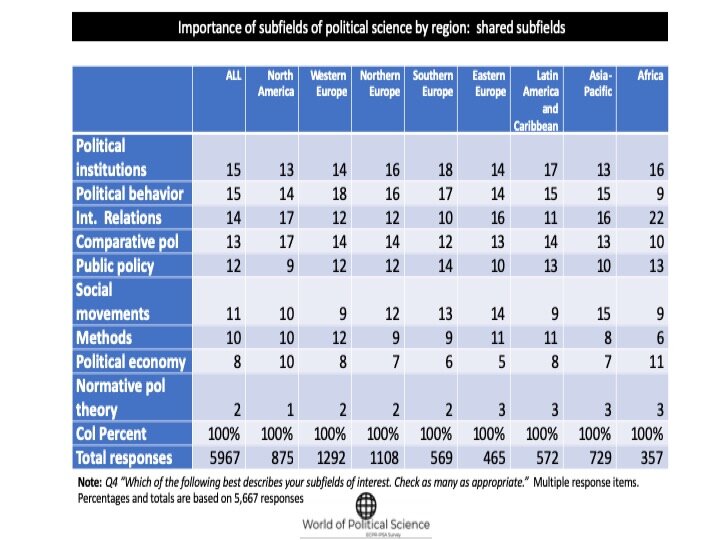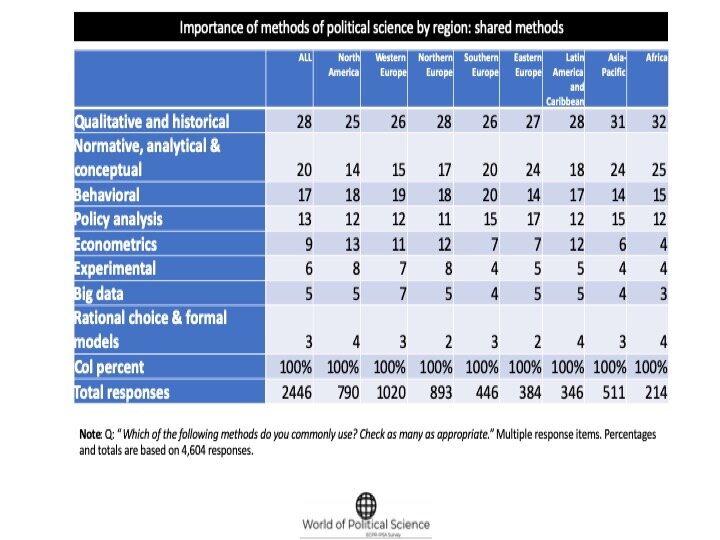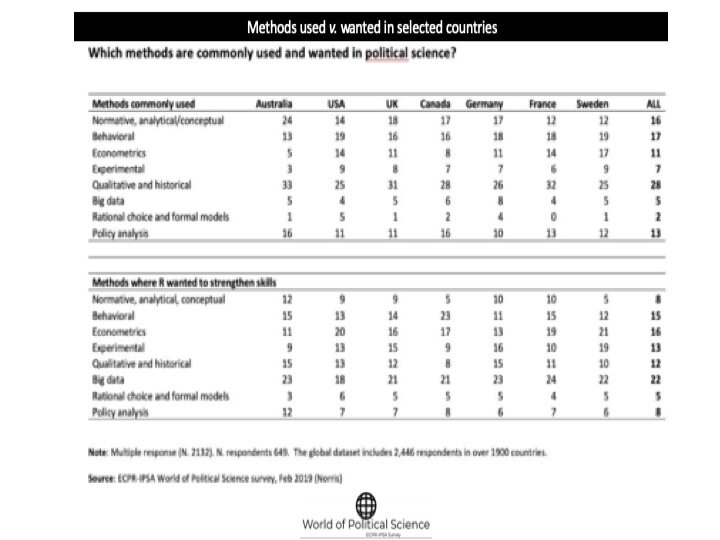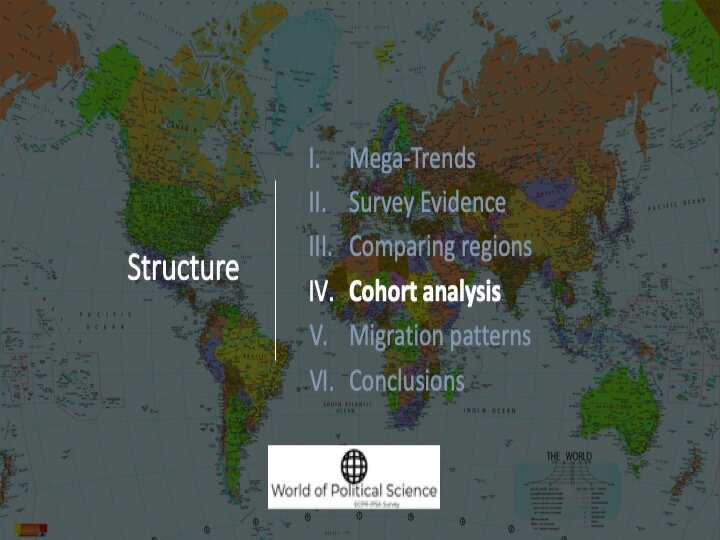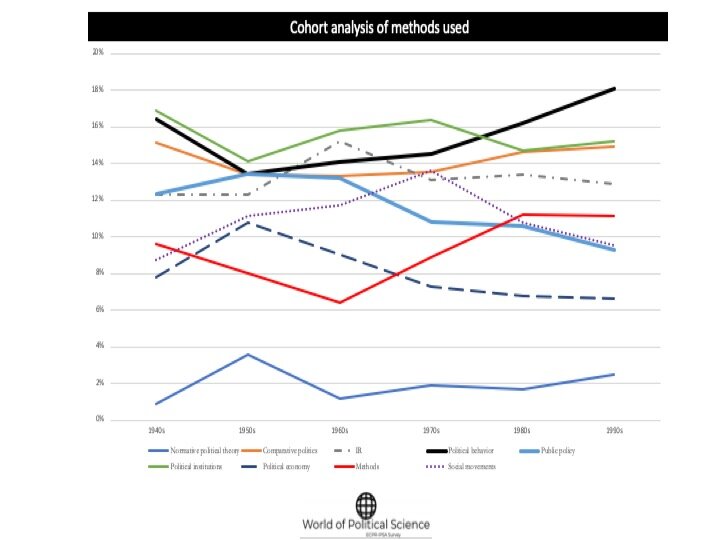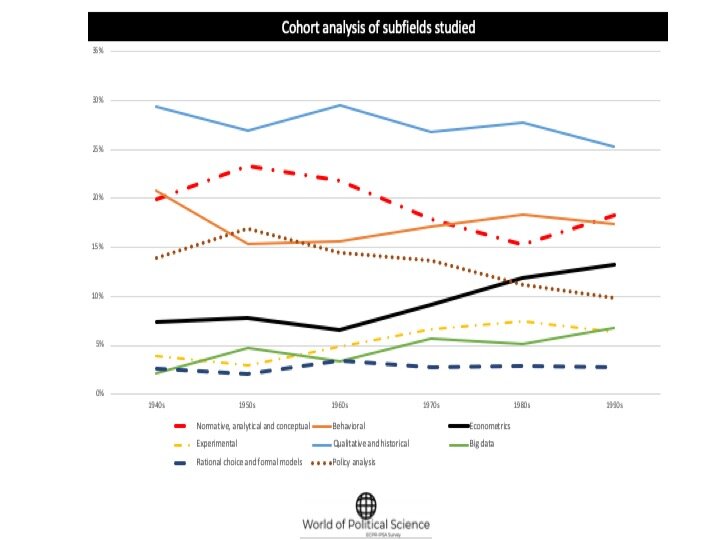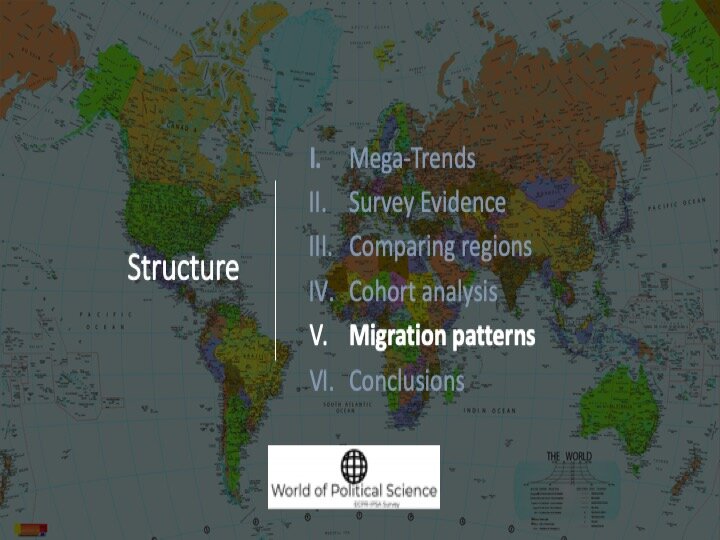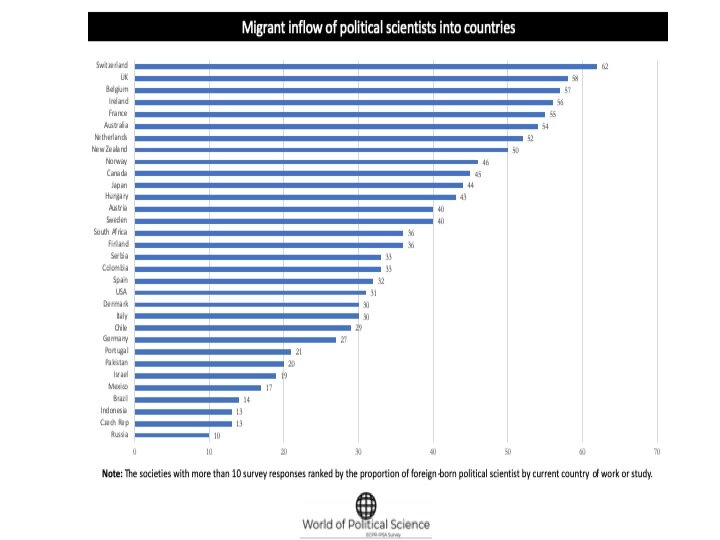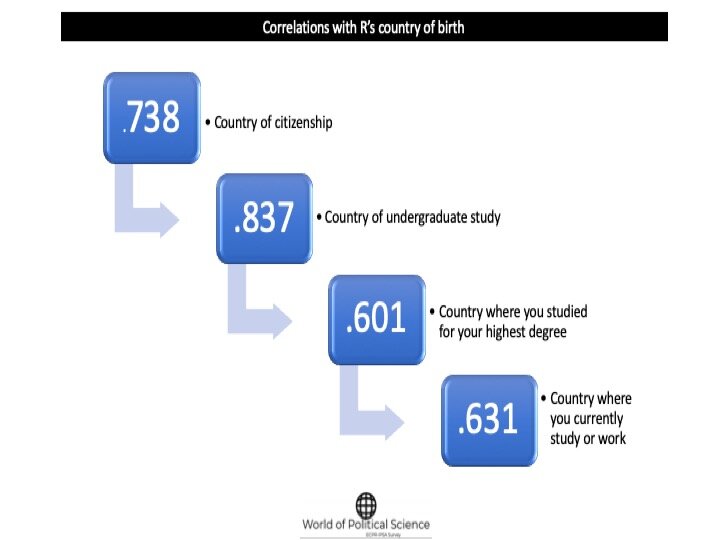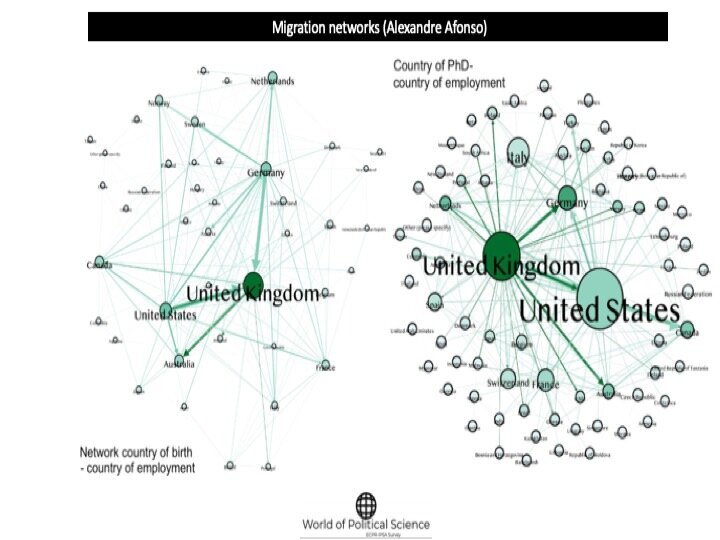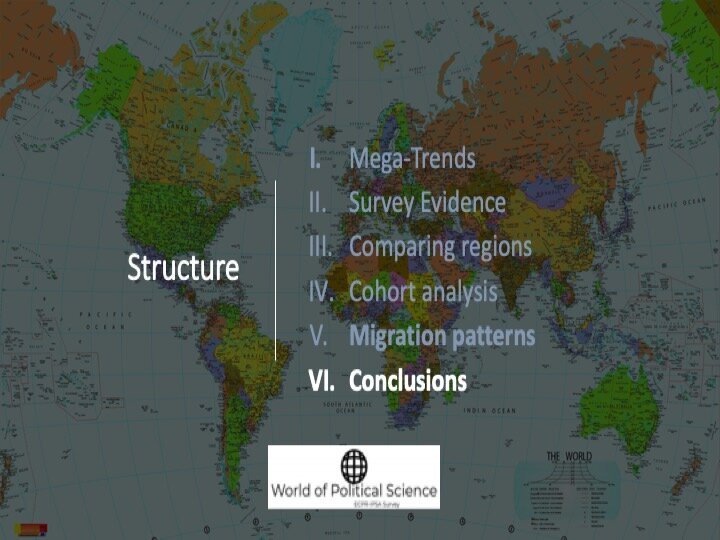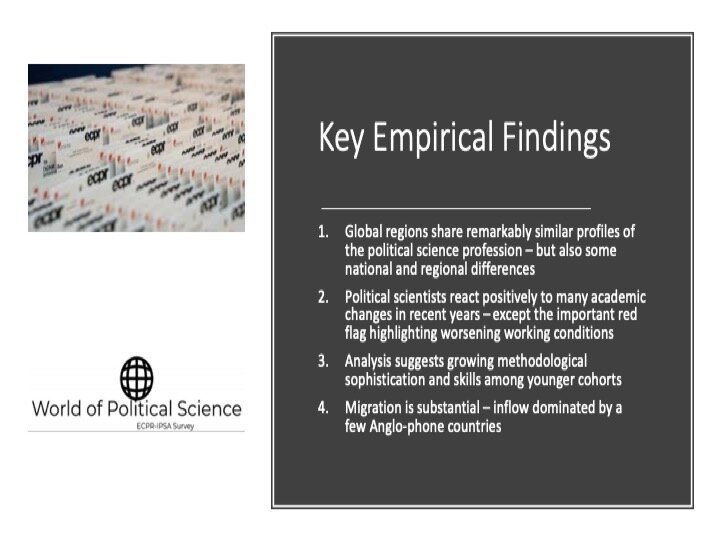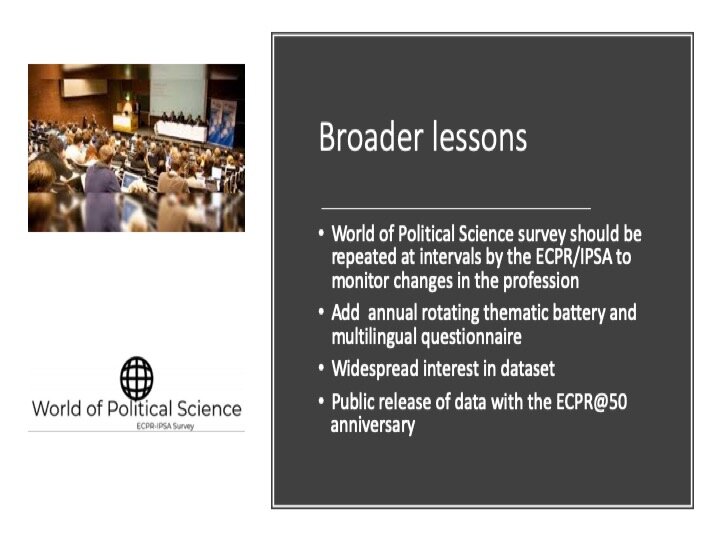Invitation to participate
The first baseline ECPR-IPSA World of Political Science survey (WPS-2019) was launched in spring 2019 and the second survey (WPS-2023) monitored subsequent developments.
Aims and objectives
The study, conducted by Pippa Norris in conjunction with the European Consortium of Political Research (ECPR) and the International Political Science Association (IPSA), seeks to provide a representative profile of the political science profession across the globe.
The surveys of the profession have been designed to address several issues:
Firstly, what are the background characteristics, qualifications, and career profiles of political scientists employed in higher education in different cohorts, regions and countries around the world, such as terms of gender, work status, institutional affiliations, and academic rank? How has this changed in recent years?
Secondly, do political scientists living and working worldwide share common or divergent perceptions about their work roles, and thus the relative importance of teaching and mentoring, research and publication, university and professional service, and real-world policy impact?
Thirdly, what are the perceptions and experiences of colleagues towards the ‘cancel culture’ and academic freedom, and do these views vary by ideological viewpoint, background characteristics, and country?
Fourthly, how does the social diversity of political science vary and how do opportunities differ for diverse groups in the profession?
Finally, how do colleagues evaluate developments in the profession, including opportunities for virtual and in-person interactions and communications, and what is thought to have been lost -- and what gained in recent years pre and post-Covid?
Methods and data
The World of Political Science (WPS) surveys of the profession have been designed to gather information about the discipline, including the social background and work experiences of political scientists, their professional training, technical skills, and formal qualifications, as well as their role perceptions, methodological approaches, sub-fields of research, and perceptions of changes to academic life. The surveys provide the broadest geographic scope for any previous equivalent study in the discipline.
Invitations asking political scientists to participate have been widely distributed through social media notifications (Facebook, emails, and Twitter), the ECPR Newsletter list and IPSA lists, and through newsletters among several national associations (CPSA, PSA UK, Australian PSA, and the Russian PSA).
All individual responses in the study are treated as anonymous and no identifiable personal data is collected in the survey. Data collected by the ECPR is treated in the strictest confidence, under the terms of the UK Data Protection Act and in accordance with the ECPR’s Privacy Policy.
The ECPR plans to repeat the survey on a regular basis every few years to monitor developments since the original 2019 baseline survey, while adding rotating thematic batteries on topical issues of widespread concern to the profession.
Technical queries should be sent to the Survey Administrator, ECPR’s Communications Manager, Rebecca Gethen rgethen@ecpr.eu.
Data and response rate
In the WPS-2019 survey, 2,446 responses were collected overall, including from respondents who were studying or working in 102 countries and eight global regions.
In the WPS-2023, overall 1,989 valid responses were collected online between 29 November 2022 and 31 January 2023. This included replies from respondents who were political scientists currently studying or working in 103 countries worldwide.
The Datasets, Questionnaires, and Codebooks for WPS-2019 and WPS-2023 can be downloaded from Harvard’s Dataverse.
Publications
Pippa Norris. 2020. “The World of Political Science: Internationalization and its Consequences” published as Chapter 3 in European Political Science at 50 Eds. Isabelle Engeli, Thibaud Boncourt, and Diego Garzia. Essex: ECPR Press.
Pippa Norris. Aug 2020. “Closed Minds? Is a ‘Cancel Culture’ Stifling Academic Freedom and Intellectual Debate in Political Science?”HKS Working Paper RWP20-025
Pippa Norris. 2021. ‘Cancel Culture: Myth or Reality’, Political Studies 71(1), 145–174.
Pippa Norris. 2021. ‘What maximizes productivity and impact in political science research?’ European Political Science. 20th Anniversary special issue. 20(1): 34-57.
Pippa Norris. 2023. ‘Cancel culture: Heterodox self-censorship or the curious case of the dog-which-didn’t-bark.’ HKS Working Paper RWP23-020.












